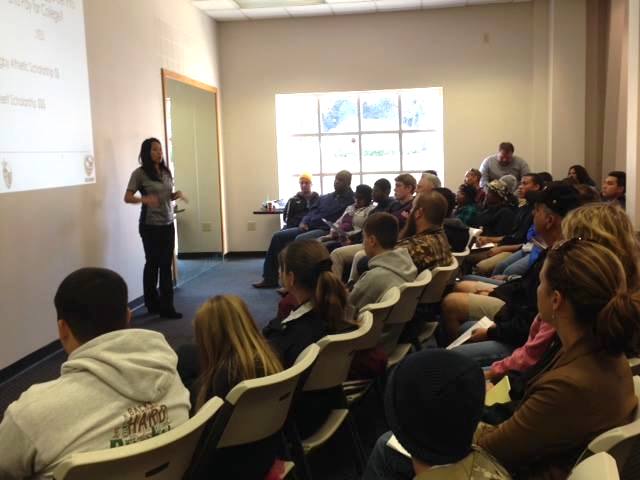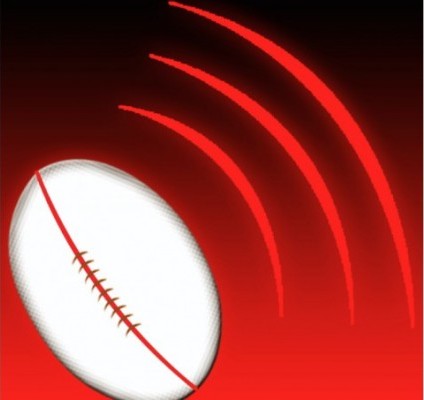Coaches Can Help HSers Seeking Answers
Coaches Can Help HSers Seeking Answers
As summer camps for high school rugby players become more common, the questions, and expectations, that high school players have becoming clearer to coaches and advisors.
At Goff Rugby Report we spoke with several sources about whether high school rugby players have a clear idea of what playing college rugby - and balancing sports and academics - at a university is like.
At ATAVUS (formerly Serevi Rugby), coaches work with high schoolers around the country on their rugby skills, but the work often spills over into other areas of life. With ATAVUS’ College Connection, the organization partners with Karen Fong Donoghue at The Rugger’s Edge to advise athletes on applying to college, and also in being prepared for college life while they’re there.
ATAVUS coach and former Brown University All American, Emilie Bydwell, worked with over 500 high school athletes last year. She thinks there is an important role for coaches to play in helping high school players navigate the waters.
“Kids are still trying to understand what Varsity means, and how that relates to emerging sports as opposed to non-emerging sports,” said Bydwell. “Because of the variety of levels of collegiate rugby, and how new the sport is to many, there can be some confusion for high-schoolers on what the difference between a Varsity program at one school, or the various not-quite-varsity programs at another school means. When providing the basics of the college game, we try to stay away from umbrella terms like Varsity or Scholarships. You can’t be too general, because at this point every college rugby program is different.”
And because so many schools have different levels of commitment and different expectations of the athlete, the players have to learn more.
“It’s a bit of a generalization, but often I see that girls are concerned that they won’t be able to handle the time commitment, or won’t be able to compete physically,” said Fong-Donoghue, whose company advises high-schoolers on applying to college. “That’s perhaps why at my seminars it’s 90% boys. The boys come in really confident that they can compete at that level. Both boys and girls have to understand what they want to get out of their college experience - what level of commitment they want to give rugby, and what demands their academics will make on them.”
Fong-Donoghue said that pre-med or engineering majors might find that rugby, other than as a more recreational activity, doesn’t fit. Some kids are just unaware that classes at college can last up to three hours, and that the out-of-class studying time can be enormous. And then add to that the fact that if your rugby team is going to playoffs and will be in special training for a week, and that means the student-athlete has to re-schedule exams, you can see how it can be complicated.
“I had one player who concluded that he would fail out if he went to one school where the commitment for rugby was high, so he went to another school where he was practicing two days a week, because that’s what he felt he could do and still do well in school,” said Fong-Donoghue.
“I think most high school players serious about rugby are relatively well prepared to play in college, especially since most college teams still recruit most of their team from the student body,” said Bowdoin women’s Head Coach MaryBeth Mathews. “At Bowdoin, a DII national competitor, I’ve had first-year students playing on the First XV right away and others have taken a bit longer. It also depends on the strength of the returning team. Here, and at all programs, it depends on how well matched their previous rugby experience is with the level of the collegiate program and how hard they’re willing to work.”
Mathews said some players put off playing rugby because they want to get on top of their academics. Mathews said this is a big mistake.
“My experience as a first-year dean and coach, as well as plenty of quantifiable research, shows that students who play sports are happier, healthier, and get better grades when they are ‘in-season’ vs. when they are not playing their sport,” she said. “Sports offer a multiplicity of benefits that ripple across many aspects of a college student’s life: being on a team gives a sense of community and belonging, fresh air and exercise reduces stress and yields better sleep and eating habits, regular practice schedules help with time management and attention when studying, having a group of friends committed to the same goals reinforces your own determination and enhances accomplishments. Students who deferred joining the team and joined the next semester or the following year ALWAYS wish they had joined earlier.”
It’s all about time management, added University of Arizona Head Coach Sean Duffy.
“You can get a kid who goes into an environment where he’s training three times a week or more over the entire year, and he can get burned out,” said Duffy. “It’s a shock to them. Kids come in academically focused, but they also have more freedom than they’ve ever had. So we work with the kids to get them acclimated, and also try not to over-use them as athletes.”
 |
Duffy said he has suggested players take time away from rugby to focus on school - sometimes those kids come back, sometimes they don’t. And sometimes, the player doesn’t come back, but doesn’t tell his parents, who think the player has been cut when it was the player’s decision. Part of being an independent college student, said Duffy, is being open with your parents about issues you’re facing.
So players need to be aware that rugby can help them structure their college life, but that they need to use that structure to be sure on top of the academic demands of college. And, as ATAVUS’ Bydwell said, “the players also need to know what kind of program they’re going into - what is the financial commitment? How well does the rugby program collaborate with the academic departments to ensure student-athletes can succeed on both sides, while balancing a schedule that can take them away from campus more than an average student?”
“Our camps offer the College Connection, which opens up our programs for college coaches to come and answer questions, and get a look at the talent on the field at the same time,” said Bydwell. “That’s a great opportunity for coaches to be clear about what the expectations are and players to get real feedback on the rigors of collegiate rugby.”
Players have expectations, or assumptions, too, and sometimes they are just wrong.
“A percentage of high school girls and boys that come to Polar Bear Rugby Camp worry they won’t be able to compete in college because they lag behind in size, strength, aggression and their level of physicality,” said Mathews. “What camp does is help them understand that college players were once in the very same spot the high school girls and boys are now, and that’s OK. We run a fun ‘get to know you’ session with collegiate and high school girls together on the first night of camp to welcome them, form new friendships, answer questions, and allay any fears. Knowing you are one part of a powerful group of female rugby players at camp is an empowering feeling and intrinsically raises the level of skill, understanding and commitment you know you are capable of in rugby. For boys and girls, the exposure to, and experience of, playing with college players is really great.”
So players need to be realistic about their academic abilities, but also need to know how much academic support the rugby team can offer (some offer a lot). They need to be realistic about the time commitment they are willing to give to rugby, but also should perhaps trust in their ability to compete at the collegiate level (especially for girls). And they need to ask questions - of a coach, a counselor, and people running all of those summer camps.
“If students are using their HS guidance counselors or others trained to help, and they learn about the different types of education, colleges and universities that exist, they should have a realistic idea of where they can be admitted,” said Mathews. “If they want rugby to be part of their collegiate experience, they’ll also need to research the teams and coaches to find the best fit academically, athletically and personally for them. I don’t think it’s well known on all high school rugby teams that rugby can open doors for some of them. That may depend on whether the coach/assistant coach played in college or lets them know about the opportunities. It comes down to students asking questions, searching the Internet, talking with coaches, friends, and other resources.”











